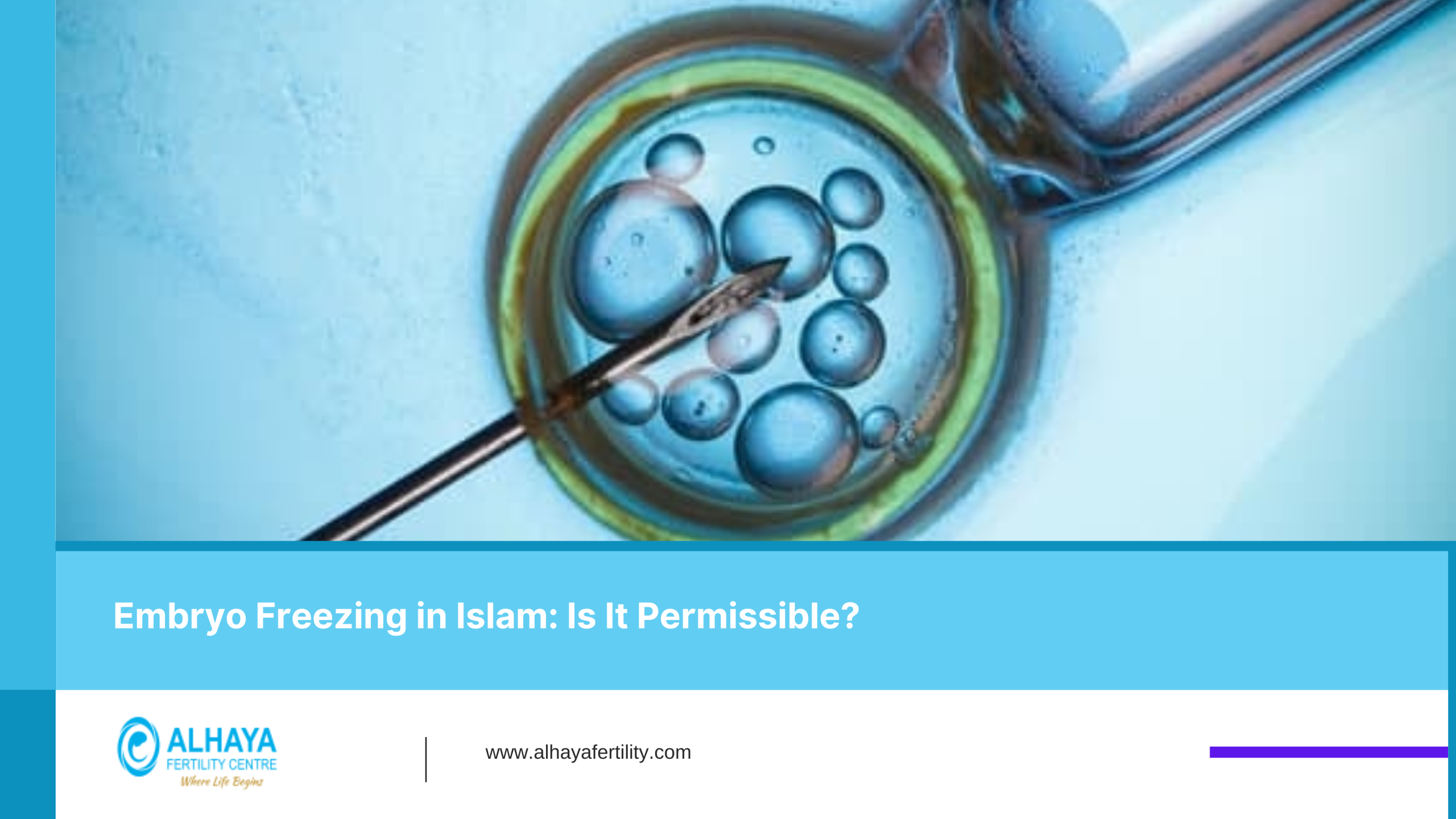Embryo freezing, also known as embryo cryopreservation, is a widely used fertility preservation method. It allows couples undergoing In-Vitro Fertilisation (IVF) to store fertilised embryos for future use. This technique offers several benefits, including the ability for women to extend their reproductive timelines and increase the chances of a successful pregnancy later in life when they are ready for motherhood. While medically beneficial, many Muslim couples seeking fertility treatments ask: Is embryo freezing halal?
Islamic perspectives on fertility preservation are rooted in maintaining marital sanctity, lineage integrity, and ethical boundaries. Thus, embryo freezing is permissible in Islam under specific conditions that align with Sharia-compliant fertility treatments.
Is Embryo Freezing Halal in Islam?
According to Islamic jurisprudence, embryo freezing is allowed under the following Sharia guidelines:- The embryos must originate from a married couple: The sperm and egg must come from the husband and wife during their marriage. The fertilised embryo should only be implanted into the wife’s uterus.
- Embryo usage is restricted within marriage: If a couple divorces or if one spouse passes away, the frozen embryos must not be used. This ruling ensures lineage purity, preventing legal and ethical complications.
Prohibited Practices in Embryo Freezing
Certain practices related to embryo freezing are explicitly prohibited under Islamic law:- Third-party involvement is haram: Using donor sperm, donor eggs, or surrogacy is strictly forbidden in Islam. The involvement of a third party disrupts lineage purity and goes against Islamic teachings.
- Posthumous reproduction is impermissible: If the husband passes away, using his frozen sperm or embryos is not allowed under Islamic law. This ruling aligns with the principle that reproduction must occur within a valid marital relationship.
How Successful Is Embryo Freezing?
Embryo freezing has significantly improved fertility treatment outcomes. Studies show:- Survival rate after thawing: 90–95 percent
- Pregnancy success rate per thawed embryo transfer: 50–60 percent
- Success rates for fresh vs. frozen embryos: Comparable, with frozen embryo transfers (FET) even showing higher success in some cases
Why is embryo freezing beneficial?
- Preserves fertility for those who may need to delay pregnancy for personal or medical reasons
- Reduces the need for repeated ovarian stimulation cycles during IVF
- Allows genetic testing before implantation
- Improves overall IVF success rates
Embryo Freezing and Islamic Fertility Ethics
Many Muslim couples face infertility as both a medical and spiritual challenge. Following Islamic fertility ethics allows them to pursue parenthood while maintaining religious integrity. At Alhaya Fertility Centre, we prioritise:- Halal-certified fertility treatments
- Sharia-compliant IVF and embryo storage
- Ethical and compassionate reproductive care
Take the first step today – Learn more about our IVF approach and Sharia-aligned fertility support by consulting to our fertility experts.

